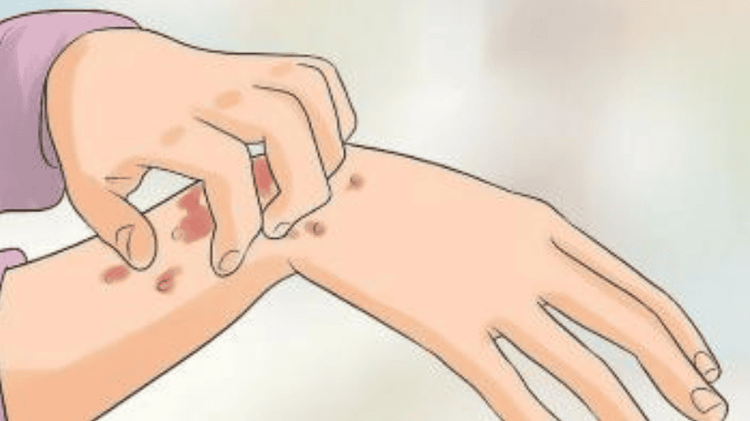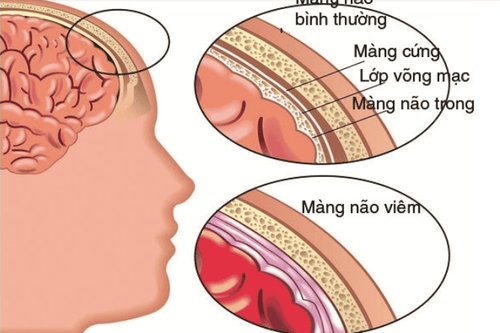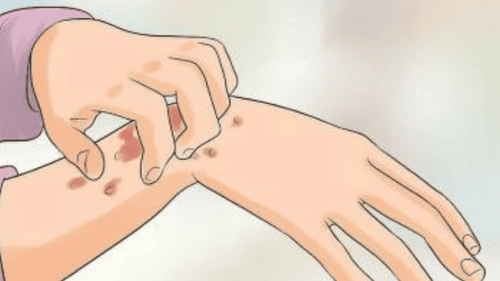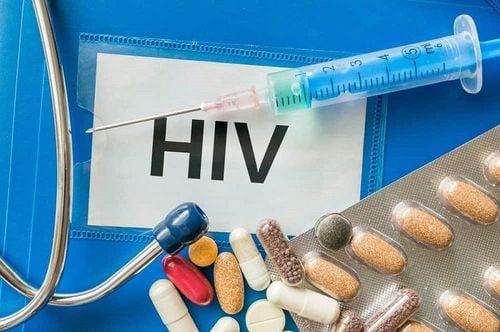This is an automatically translated article.
Syphilis is a sexually transmitted disease. It is easily treated with antibiotics. However, if syphilis is left untreated, the infection can lead to a number of serious conditions that cause serious, even life-threatening complications.
1. Syphilis
Syphilis is a bacterial infection that is usually spread through sexual contact. It starts with pain but doesn't cause pain - typically on the genitals, rectum, or mouth.
Syphilis is spread from person to person through skin or mucous membranes that come into contact with sores. After an infection, the syphilis bacteria can partially hibernate in the body for decades before it becomes active again. Syphilis caught early is curable, sometimes with just a single injection of penicillin.
However, untreated infection can cause serious damage to the heart, brain or other organs and can be life-threatening. Syphilis can also be passed from mother to baby before birth.
Syphilis is caused by a bacterium Treponema pallidum. The most common route of transmission is through contact with an infected person during sexual activity. The bacteria enter the body through small cuts or abrasions in the skin or mucous membranes.
Syphilis is infectious in the primary and secondary stages, and sometimes in the early latent stage. Less commonly, syphilis can be spread through direct unprotected contact with active lesions (such as during kissing) or through infected mothers to their unborn babies. during pregnancy or childbirth (congenital syphilis).
Syphilis cannot be spread by using the same toilet, bathtub, clothing or eating utensils, or from doorknobs, swimming pools or hot tubs.
Once cured, syphilis does not come back. However, it is still possible to get reinfected if exposed to syphilis from an infected person.

Bệnh giang mai là bệnh lý lây nhiễm qua đường tình dục
2. Syphilis complications
If left untreated, syphilis can lead to total destruction of the body. In addition, syphilis also increases the risk of HIV infection and in women can cause dangerous conditions during pregnancy. Treatment can help prevent future damage to the body from syphilis, but cannot repair or eliminate the damage caused by the disease in the past.
Possible complications from syphilis:
Small bumps or lumps called gummas. These bumps can develop on the skin, bones, liver, or any other organ in the late stages of syphilis. Gummas usually go away after treatment with antibiotics. Neurological problem. Syphilis can cause a number of problems with the nervous system including: Headache, stroke, meningitis, hearing loss; dementia , loss of pain and temperature sensations, male sexual dysfunction (impotence), bladder incontinence... Vision problems such as poor eyesight, loss of reflexes light, eye muscles become numb, the optic nerve is severely damaged, which can lead to blindness. Cardiovascular problems. Syphilis can affect the functioning of the heart. These can include aneurysms (aneurysms) and inflammation of the aorta - this is the body's main artery and other blood vessels. Syphilis can also damage heart valves. HIV infection. Adults with sexually transmitted syphilis or other genital ulcers are two to five times more likely to get HIV. A syphilis wound can bleed easily, providing an easy way for HIV to enter the bloodstream during sexual activity. Complications during pregnancy and delivery. If a mother is pregnant, she can pass syphilis to her unborn baby. Congenital syphilis significantly increases the risk of miscarriage, stillbirth, or infant death within a few days of birth.

Một biến chứng nguy hiểm của bệnh giang mai là viêm màng não
3. Syphilis prevention
There is no vaccine for syphilis. To help prevent the spread of syphilis should:
Abstain or be monogamous. The next best option is monogamous sex, in which both people have sex only with each other and neither partner is infected. Use condom. Condoms can reduce the risk of syphilis, but only where the condom can cover syphilis sores. Avoid recreational drugs such as ecstasy. Abuse of alcohol or other drugs can inhibit self-judgment and lead to unsafe sex. If you have syphilis, you should notify your partner for preventive treatment. If tests show you have syphilis, your sex partners - including your current sexual partner and any other partners you've had sex with in the past three months to a year - need to be informed. so they can be tested. If they become infected, they can quickly get treatment. Partner notifications can help limit the spread of syphilis. The practice also helps people at risk of disease receive the right advice and treatment with a highly effective regimen. And since you can get syphilis more than once, a partner's notice reduces the risk of getting re-infected. Screening for pregnant women. People can be infected with syphilis and not know it. Given that syphilis can often be fatal to unborn babies, health officials recommend that all pregnant women be screened for the disease. Vinmec International General Hospital offers a package of Examination and Screening for social diseases to help customers detect diseases early and have effective treatment and prevent dangerous complications. The screening package for social diseases at Vinmec is for all ages, both men and women.
To register for examination and treatment at Vinmec International General Hospital, you can contact Vinmec Health System nationwide, or register online HERE.
Articles refer to the source: webmd.com, mayoclinic.org
MORE:
Syphilis: Causes, transmission, signs to recognize Syphilis can be transmitted from mother to child through the placenta When to think sexually transmitted disease testing?













